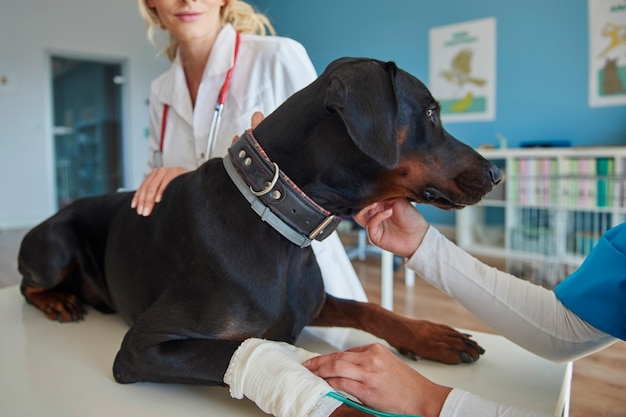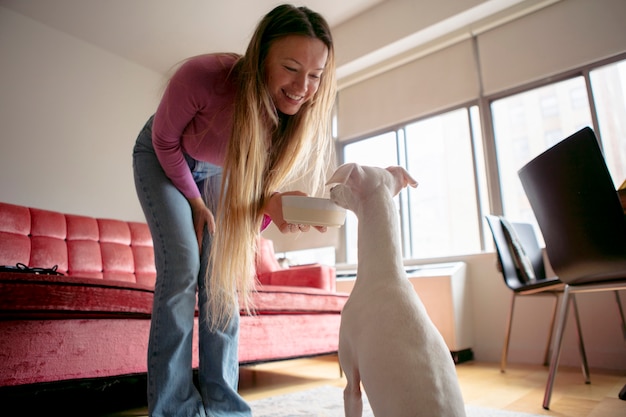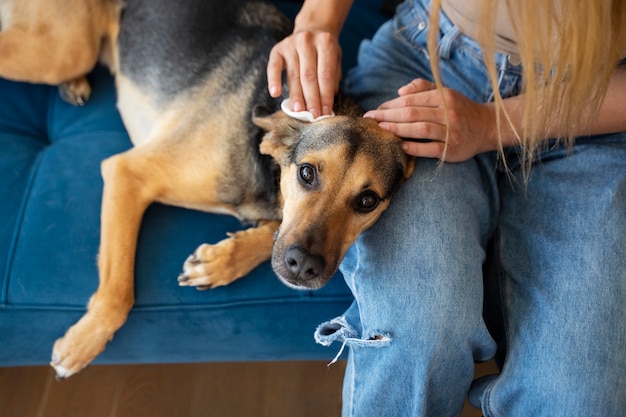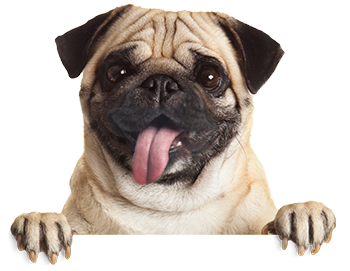Healthy Pet Diets: Nutrition Tips for Clifton, TX Owners

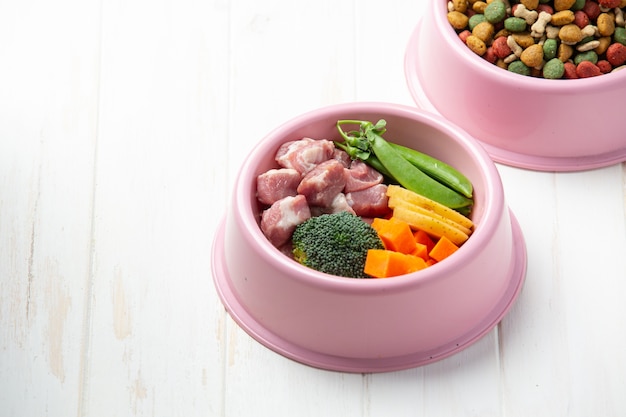
Healthy Pet Diets: Nutrition Tips for Clifton, TX Owners
Every pet owner wants to see their furry friend thrive, and one of the most important ways to support a pet’s lifelong health is through proper nutrition. Whether you’re caring for a playful puppy, a curious kitten, or a beloved senior companion, the right diet can make a world of difference in their overall wellness, energy, and even their mood. At Clifton Veterinary Clinic in Clifton, TX, our veterinary team often hears questions from local families about the best pet nutrition tips and how to choose healthy pet diets tailored to their animal’s unique needs.
In this blog, we’ll walk you through how to recognize nutrition-related issues in pets, why balanced diets matter, what treatment and management options are available, and how to help your pet stay healthy at home. You’ll also learn when to seek expert guidance from a veterinarian near me for nutrition support. Whether you live in Clifton or the surrounding communities, our friendly team is here to help you schedule an appointment and get personalized advice for your pet’s specific needs.
Recognizing Nutrition Problems in Pets
Every pet is unique, but there are common signs that may indicate issues with diet or nutrition. For dog and cat owners in Clifton and the surrounding areas, it’s important to keep a close eye on your pet’s behavior, appearance, and overall health. Early recognition of nutrition problems can help prevent more serious conditions down the road.
Symptoms That May Signal a Poor Diet
Some of the most frequent indicators that your pet’s diet may need adjustment include changes in coat quality, such as dull or brittle fur, as well as skin problems like itchiness, flaky patches, or redness. Additional warning signs are unexpected weight gain or loss, frequent digestive upset such as vomiting or diarrhea, and a noticeable decrease in energy or enthusiasm for activities. Owners may also notice persistent bad breath, dental issues, or a lack of interest in food. For cats, hairballs or excessive shedding may be connected to dietary factors.
If your pet displays any of these symptoms, it could be linked to their current diet or an underlying health issue. Our veterinarians frequently help owners in Clifton and nearby communities determine if these signs are nutrition-related or require further medical investigation.
When to Be Extra Vigilant
Certain pets are at higher risk for nutrition-related concerns, including puppies and kittens, senior pets, breeds with known dietary sensitivities, and those with chronic medical conditions. Seasonal changes in Clifton, such as hot Texas summers, may also affect water needs and appetite, making it even more important to monitor your pet closely.
Why a Healthy Pet Diet Matters
The importance of proper nutrition for pets cannot be overstated. A balanced and species-appropriate diet supports every aspect of your pet’s health, from strong muscles and healthy joints to a resilient immune system and shiny coat. At Clifton Veterinary Clinic, we believe that healthy pet diets are the foundation for disease prevention, healthy growth, and a long, happy life.
The Science Behind Balanced Nutrition
Pet foods are formulated to provide the essential nutrients dogs and cats need, including proteins, fats, carbohydrates, vitamins, and minerals. However, not all commercial diets are created equal; some may lack critical nutrients or contain excess fillers that contribute little to your pet’s wellbeing. Homemade diets can also pose challenges if not properly balanced, occasionally leading to deficiencies that might not become evident until much later.
Our veterinary professionals recommend choosing pet food that meets the Association of American Feed Control Officials (AAFCO) guidelines for your pet’s life stage and activity level. For pets with allergies, sensitivities, or special medical needs, a custom diet plan may be necessary.
Common Causes of Nutritional Imbalances
Nutritional imbalances in pets can result from feeding low-quality foods, offering excessive treats or table scraps, or following fad diets without veterinary guidance. Additionally, some pets have unique needs based on their age, breed, or underlying health conditions. For example, large-breed puppies require different calcium and phosphorus ratios than small breeds, while senior pets may need diets lower in calories but higher in certain nutrients to support joint and cognitive health.
Environmental factors in Clifton, such as increased outdoor activity during mild seasons, may also impact calorie and hydration requirements. Our team helps pet owners understand these variables and make informed choices for their animals.
Professional Nutrition Guidance and Treatment Options
When it comes to managing your pet’s nutritional needs, working with a veterinarian provides the most reliable path to success. At Clifton Veterinary Clinic, our veterinarians offer tailored advice and ongoing support to help you select and maintain healthy pet diets for every life stage.
What to Expect From a Nutrition Consultation
During your visit to our Clifton, TX clinic, our veterinary team will start by taking a thorough health and lifestyle history for your pet. This includes reviewing their current diet, treat intake, activity level, and any symptoms you’ve noticed. A physical exam, and in some cases laboratory tests, may be recommended to rule out underlying health issues or confirm nutritional deficiencies.
Based on these findings, we may suggest changes to your pet’s diet, such as switching to a prescription or therapeutic food, recommending specific supplements, or creating a custom feeding plan. For pets with food allergies or sensitivities, elimination diets or hypoallergenic formulas can help identify and manage triggers. We also provide guidance on appropriate portion sizes, safe treats, and how to transition your pet gradually to new foods.
Ongoing Support for Special Needs
Some pets require ongoing nutritional management due to chronic conditions like diabetes, kidney disease, or obesity. In these cases, frequent check-ins with our veterinary professionals help monitor progress and make necessary adjustments to the feeding plan. Our team is always available to answer your questions and provide resources for keeping your pet on track.
Preventive Nutrition Tips and Home Care for Clifton Pet Owners
Taking proactive steps at home is just as important as regular veterinary visits. By focusing on preventive nutrition strategies, you can set your pet up for a lifetime of good health.
The Basics of a Healthy Diet
Feeding your pet a consistent, high-quality commercial food that is appropriate for their age, size, and activity level is usually the first step. This means selecting diets labeled for growth if you have a puppy or kitten, or maintenance if you have an adult or senior pet. Limiting treats to less than 10% of total daily calories can help prevent weight gain and maintain balanced nutrition.
Always provide fresh, clean water, especially during hot periods in Clifton when pets are at greater risk for dehydration. Avoid feeding your pets human foods that can be toxic, such as grapes, onions, garlic, and chocolate. When introducing new foods, do so gradually over several days to minimize digestive upset.
Maintaining a Healthy Weight
Obesity is a common problem in both dogs and cats, leading to a higher risk of arthritis, diabetes, and other chronic illnesses. To keep your pet at a healthy weight, measure their food portions carefully, encourage regular exercise, and monitor their body condition. If you’re unsure about the ideal weight for your pet, our veterinary team is happy to provide guidance during your next wellness care appointment.
Special Considerations for Clifton and Surrounding Communities
With the active lifestyles many families enjoy in Clifton, Meridian, Valley Mills, and Morgan, pets may spend more time outdoors or be exposed to regional plants and wildlife. It’s crucial to ensure they have access to adequate nutrition and hydration, and to be aware of any changes in appetite or behavior that could signal a problem.
When to Seek Veterinary Care for Pet Nutrition Concerns
While many nutrition issues can be managed at home with good diet choices, there are times when professional help is needed. Knowing when to contact a veterinarian near me can make all the difference for your pet’s long-term wellbeing.
Situations That Require Veterinary Attention
You should schedule an appointment with our veterinary team if your pet experiences persistent vomiting or diarrhea, sudden weight loss or gain, refusal to eat for more than 24 hours, or signs of pain or discomfort when eating. Other red flags include changes in skin or coat condition, excessive thirst or urination, or unexplained lethargy. Pets with known medical conditions, such as kidney or heart disease, should have their diets reviewed regularly by a veterinarian.
Remember, nutritional needs can change over time, especially as pets age or develop new health concerns. Regular check-ups and open communication with your veterinarian are the best ways to ensure your pet remains happy and healthy.
The Role of the Clifton Veterinary Clinic Team
At Clifton Veterinary Clinic, our veterinarians are dedicated to supporting the health of pets in Clifton and surrounding communities with compassionate, knowledgeable care. We encourage you to reach out whenever you have questions or concerns about your pet’s diet, nutrition, or overall wellness.
Take the Next Step Toward a Healthier Pet
Supporting your pet’s health with the right diet is one of the most loving things you can do as an owner. By recognizing the signs of poor nutrition, understanding why healthy pet diets matter, and working closely with your veterinarian, you can help your furry friend enjoy years of vitality and companionship.
If you’re searching for a vet near me who truly understands local pet nutrition needs, look no further than our team at Clifton Veterinary Clinic. We invite you to schedule an appointment for a personalized nutrition consultation or a comprehensive wellness visit. Our veterinary professionals are committed to providing expert pet nutrition tips and tailored recommendations for every animal we meet.
For trusted guidance on healthy pet diets in Clifton, TX and surrounding communities, give us a call at (254) 675-8925 or visit us at Clifton, TX. Together, we’ll ensure your pet gets the nutrition they need to thrive, right here in your hometown.
This article is intended for educational purposes only and does not replace professional veterinary advice. For specific concerns about your pet’s diet or health, always consult with your veterinarian.


